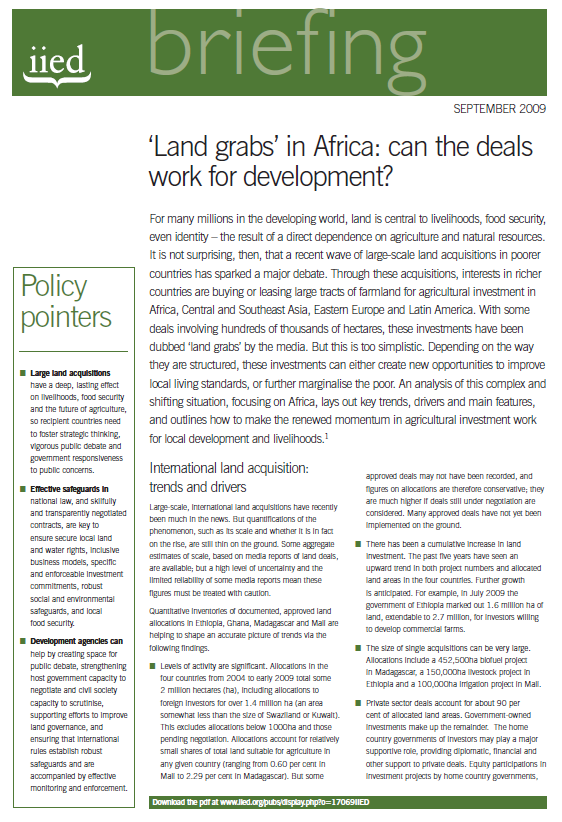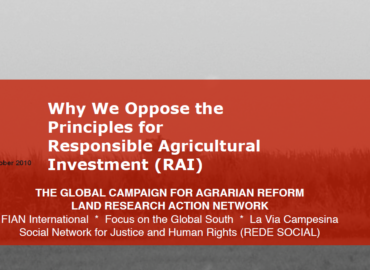For many millions in the developing world, land is central to livelihoods, food security, even identity – the result of a direct dependence on agriculture and natural resources. It is not surprising, then, that a recent wave of large-scale land acquisitions in poorer countries has sparked a major debate. Through these acquisitions, interests in richer countries are buying or leasing large tracts of farmland for agricultural investment in Africa, Central and Southeast Asia, Eastern Europe and Latin America. With some deals involving hundreds of thousands of hectares, these investments have been dubbed ‘land grabs’ by the media. But this is too simplistic. Depending on the way they are structured, these investments can either create new opportunities to improve local living standards, or further marginalise the poor. An analysis of this complex and shifting situation, focusing on Africa, lays out key trends, drivers and main features, and outlines how to make the renewed momentum in agricultural investment work for local development and livelihoods.
Authors: Lorenzo Cotula and Sonja Vermeulen
Published by: International Institute for Environment and Development (2009)
Land Grab in Africa_IIED


